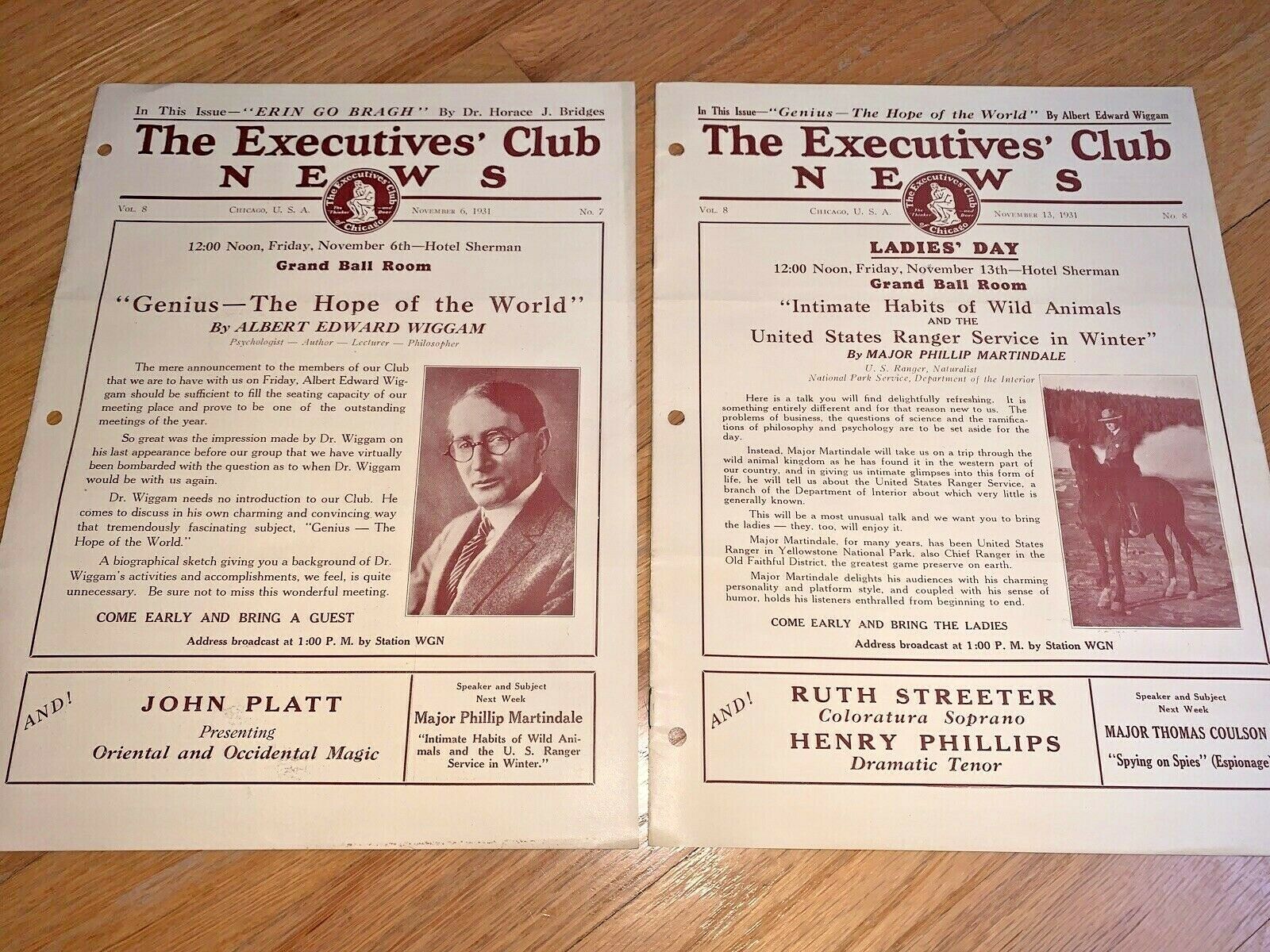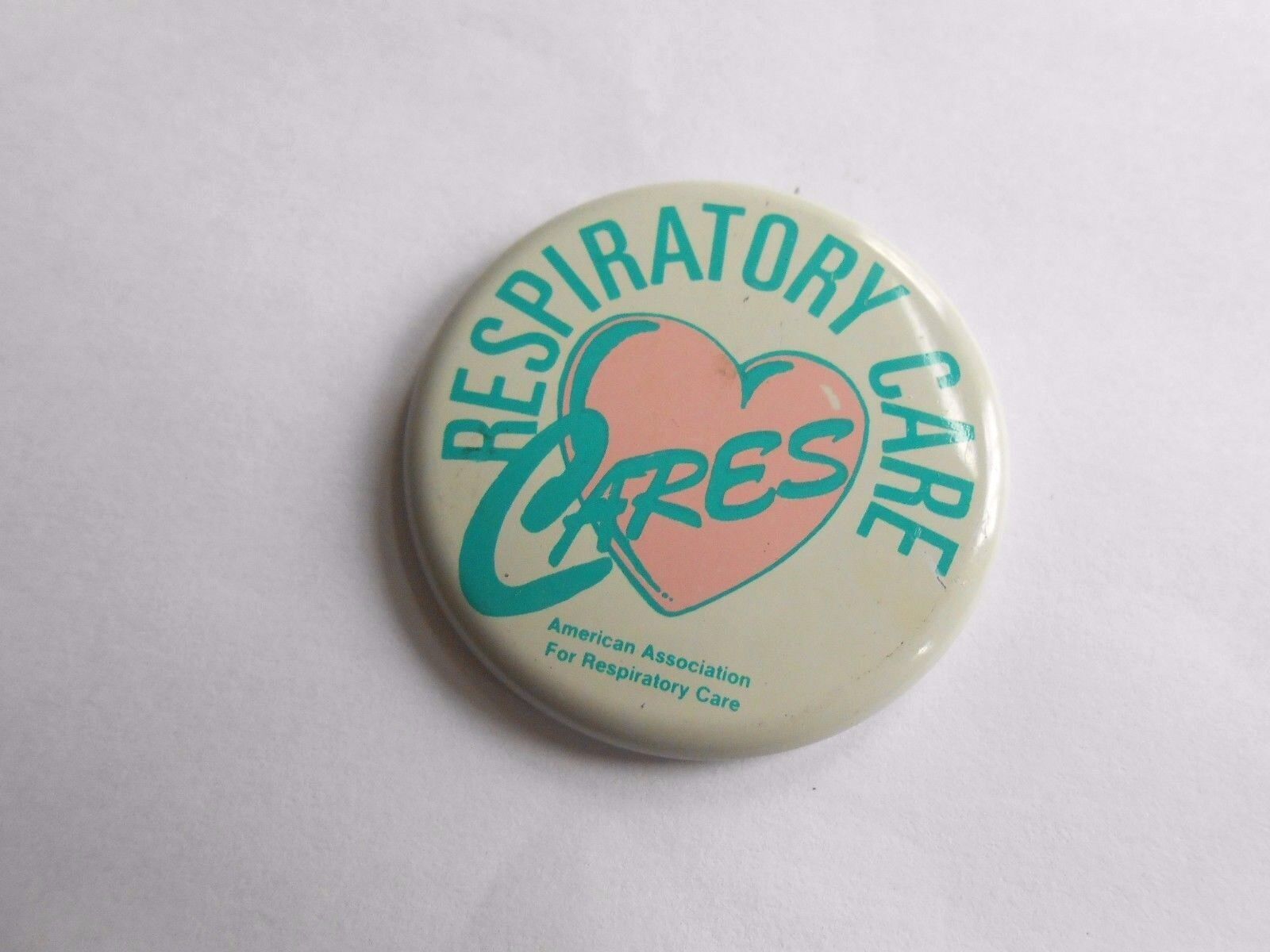-40%
1931 ALBERT EDWARD WIGGAM, Psychologist, Author Speech EUGENICS SUPPORTER
$ 7.89
- Description
- Size Guide
Description
This listing is for2- THE EXECUTIVES' CLUB, CHICAGO NEWS LETTERS from 1931
The newsletters introduced the speaker of the week and the following week's newsletter, included the detailed presentation. Both newsletters are included in this listing.
The presentation for the week of November 13, 1931 was:
"GENIUS - THE HOPE OF THE WORLD"
BY ALBERT EDWARD WIGGAM
PSYCHOLOGIST - AUTHOR - LECTURER - PHILOSOPHER
Mr. Wiggam was a prominent supporter of EUGENICS. Some information, from a publication called "Creation Matters"
One of the most important 20th century advocates of eugenics in America was Dr. Albert Edward Wiggam (1871–1957). His many books sold millions of copies and still can be found in bookstores, both the reprinted editions and used copies. Wiggam also published widely in many of the leading popular and professional journals of his day. His syndicated column Let’s Explore your Mind had a newspaper audience of approximately 20 million readers at the peak of its popularity (Wiggam, 1948, p. vii).
He also worked closely with such eminent persons as Dr. Willard Funk of Funk and Wagnalls. Although his major goal was to make eugenics acceptable to the masses, he aggressively argued that the discoveries of modern science, especially Darwinism, necessitated that we change our religious beliefs to include Darwin theology, an idea that, aside from eugenics, he preached incessantly (Wiggam, 1922; 1924; 1927; 1931). Wiggam’s work was also supported by leading scientists from major American universities, as documented by the fact that he was a leader in the American Association for the Advancement of Science (AAAS) and published in prestigious university presses (Black, 2003, p. 99). Wiggam received support by no less a eugenicist than Charles Darwin’s son, Leonard Darwin, as well as John Dewey, Charles Davenport, and Thomas Hunt Morgan.
Finding support for eugenics Wiggam’s basic belief was that “all men are born unequal” and the claim that “one man is as good as another” is false (Wiggam, 1932, p. 491). He added that these differences in humans exist at birth and are not caused by the environment. He argued that tests can determine if a child has musical talent and, if he does not, it is useless for the child to study music (Wiggam quoted in Whitehead, 1931, p. 11). Wiggam (1932, p. 491) concluded that scientists who study humans find that …nothing is more obvious than that all men are unequal; they are born unequal; they will always be unequal; nature intended them to be unequal; and no system of government, social control, or education has yet been devised or ever will be devised, that will make them equal. Indeed, the astonishing and delightful discovery of modern psychology and biology is that the more you educate men the more unequal you make them. The more you equalize opportunity, the more you unequalize men. The more nearly you treat men alike, the more unlike they become.
The view that eradication of the weaker humans and races was a major source of evolutionary advancement was well expressed by Wiggam (1922, p. 102) when he wrote that humans, at one time, …had scarcely more brains than his anthropoid cousins, the apes. But, by kicking, biting, fighting, outmaneuvering and outwitting his enemies and by the fact that the ones who had not sense and strength enough to do this were killed off, man's brain became enormous and he waxed both in wisdom and agility if not in size and morals.
In a work titled Evolution, Genetics, and Eugenics the editor, professor Horatio Newman (1932), included a chapter by Wiggam (1932, p. 495) that claimed the differences among races “are almost entirely due to their differences in natural power and aptitudes.”
Debating Darrow Wiggam not only published articles to spread his gospel of eugenics, but he was also active in public speaking and debating. In a debate on environment vs. heredity with famous attorney Clarence Darrow, Wiggam, in harmony with his eugenic beliefs, argued for heredity. He was convinced “that the great mass of the people live and die in poverty … due to the fact that ignorance has procreated ignorance for generation after generation” (quoted in Whitehead, 1931, p. 14). As evidence of this claim Wiggam (quoted in Whitehead, 1931, pp. 14-15) cited a study by Stanford Professor Lewis Terman to support his eugenic arguments. The study examined almost 1,000 gifted California children, all of which …were taken from the public schools, but not one came from a lowly laborer’s home. And of 62 men in the Hall of Fame, 25 percent were found to be of the same blood as the 1,000 children. “In Arizona and New Mexico … we find a large number of invalids who have gone there for their health’s sake. We find these tubercular strains daily producing more and more tubercular children even in this climate known to be especially inimical to the disease. Wiggam claimed that these superior children were the result of eugenics and that the way to get “healthy children is by permitting only healthy parents to breed.”
Each newsletter is 8 pages long and are both, in are in nice condition.
Some information about the Chicago Executives' Club:
Established before World War I, The Executives’ Club of Chicago has witnessed this Midwest city’s rise as a magnet for global businesses over the past 100+ years. Today, members acknowledge The Club as one of America’s top business forums
1911—1939
Distinguished by its sandy brick facade and the elegant white mantle of its top floors, the Hotel Sherman stood on the site that now holds the Thompson Center. Throughout the 1910s and roaring ‘20s, the hotel was one of Chicago's premier nightspots. While the live jazz played there wafted through its College Inn restaurant and attracted celebrities, tourists, and members of high society in the evenings, it was during the day that members of The Executives’ Club met each week in a small banquet room.
In its early years, The Club’s core members discussed among themselves the affairs of the day and the business impact. In sharing their experiences, they sought ways to learn from one another and work with each other on the business front. Perhaps they discussed new ventures that could benefit from the success of Chicago’s retail companies, or examined the strategies that enabled utilities magnate Samuel Insull, through his leadership of Commonwealth Edison, to expand the company’s hold on electric power in the Midwest.
PLEASE SEE MY OTHER LISTINGS AND STORE FOR SIMILAR ITEMS AND COMBINE FOR THE LOWEST POSTAGE.
Please feel free to e-mail any questions to me.(20)












